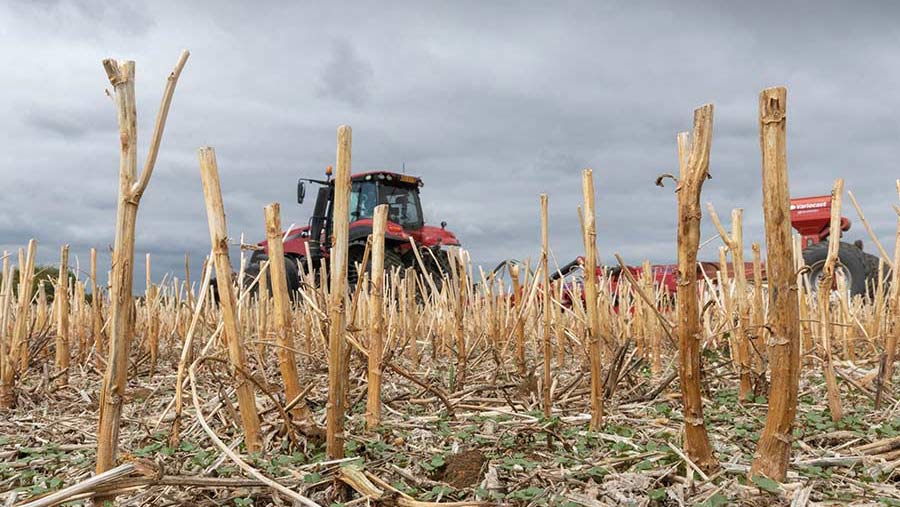Tread carefully before adopting regen ag, warns consultant
 © Tim Scrivener
© Tim Scrivener The term “regenerative farming” has become a catchall for “sustainability” , but until it is better understood and carbon can be measured accurately, farmers should move cautiously as they look to improve, a leading consultant has warned.
Addressing the recent Worshipful Company of Farmers Alumni Learning Day, Carl Atkin of Terravost suggested the term “regenerative farming” has been hijacked.
“The hype is ahead of the science,” he said. “There’s no robust scientific analysis or economic evidence to support many of the claims.
“All farming methods work by manipulating biological systems, and the key to any change is to understand your starting point.”
See also: Regenerative farming – the theory and the farmers doing it
Mark Hall, head of sustainability at Syngenta, also stressed the need for the industry to show responsibility, rather than follow a fashion.
“We have to balance the need to produce enough food with society’s concerns,” he said.
“We know that we can reduce inputs and make better use of biology – we just need to be wary of blunt instruments that limit productivity as we embrace change.”
Resilience
But Caroline Drummond of the Linking Environment, Agriculture and Food (Leaf) group said that, wherever you start, working with nature to deliver biodiversity helps businesses to become more resilient.
“Becoming more sustainable lets us deliver improved outcomes,” she said. “It’s not a competition, it’s a must. We call it integrated farm management.”
Modern technology allows farmers to accelerate sustainability improvements, she added.
“Good farming practice is based on an integrated approach – no farm is dealing with a single issue in isolation, which is why technology can help.”
For Russell Carrington of Knepp Regenerative Farms, a sustainable system is one based on biology rather than chemistry, that operates in harmony with nature.
“We all need to move in a more biological direction and replace inputs with our new knowledge and skills,” he said.
“At Knepp, it’s about doing the best we can and repairing any damage of the past.”
